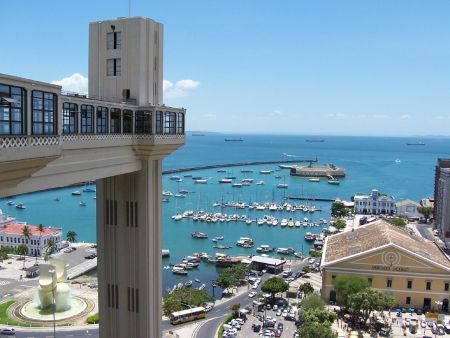Salvador, capital of the State of Bahia, is one of the oldest cities in Brazil, and was capital of the country for nearly 300 years of the Colonial History. Due to this, Salvador was one of the places in Brazil which received most black slaves, who were put to work in the sugar cane plantations.

This intense flux of Africans, who mixed with the Portuguese settlers and the native Indigenous people, resulted in a mix of cultures like no other in Brazil.
A symbol of the religious syncretism and the Brazilian miscegenation, Salvador is a city of intense musicality and strong flavors. As the birthplace of miscegenation, the city holds deep connections with Africa.
The streets of the Historical Centre of Salvador(inscribed as World Heritage Site) are permeated with an African–Brazilian culture that has spread itself throughout the rest of the country: the religious syncretism; the dance, and the baiana’s trays, full of delicacies like vatapa, feijoada, acaraje – the latter is considered a food of the Gods.
Recommended restaurant: Amado – international cuisine with local ingredients.
Salvador is one of the host cities of the World Cup 2014. The Fonte Nova Stadium will be imploded and rebuilt from scratch. Thanks to its central location, Salvador should be a favorite point of visitation during the Cup.
Matches of the World Cup in Salvador: 6; Salvador will also host matches of the Confederations Cup 2013.
Salvador sits at the Southern tip of a V-shaped peninsula at the mouth of the Bahia de Todos os Santos (Bay of All Saints, just one of the many names which makes reference to the religiosity of Salvador).
The city can be difficult to navigate as there are many one-way, no -left-turn streets that wind through Salvador’s hills and valleys (Salvador is a strong candidate to the most chaotic transit in Brazil, and not even the recently opened metro seems to help much).
The center of the city is on the bay side of the peninsula (see photo above) and is divided by a steep bluff into two parts: Cidade Alta (Upper City) and Cidade Baixa (Lower City).
The heart of the historic Cidade Alta is the Pelourinho (a World Heritage Site), which is also the heart of Salvador’ tourism and nightlife.
Read more about the World Cup in Salvador.
